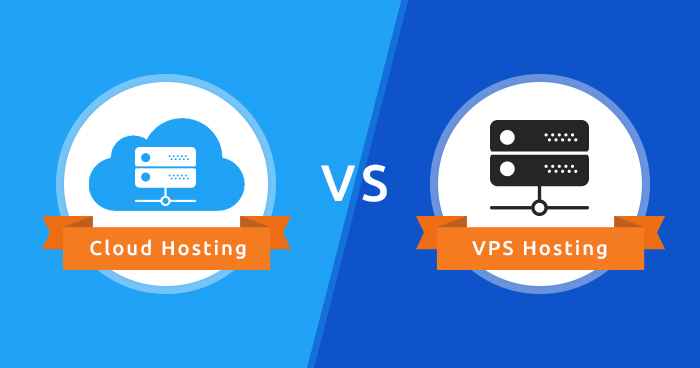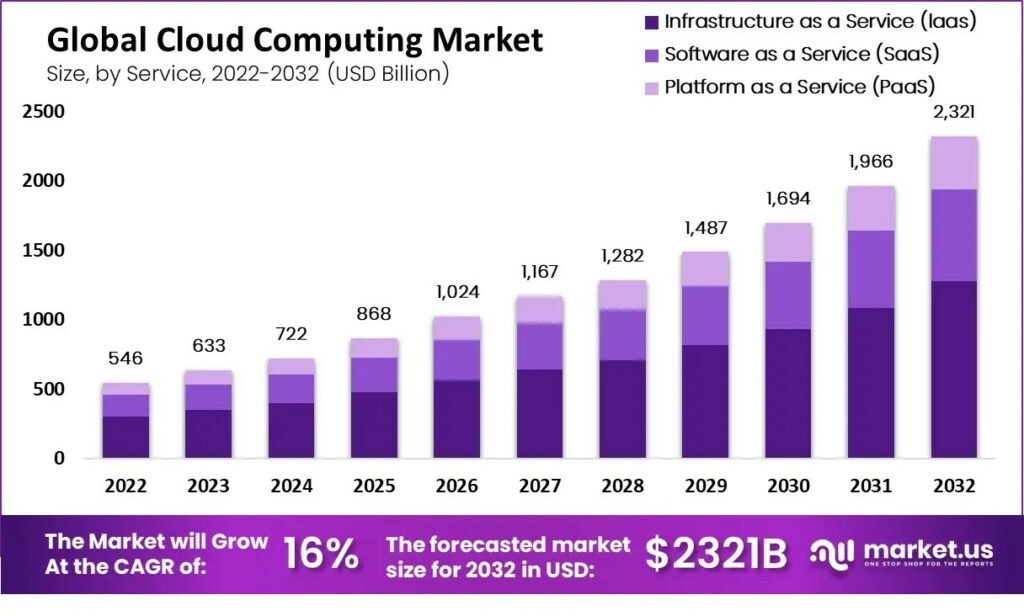
The groundbreaking contrasts between Cloud Hosting and VPS Hosting continue to ignite debate in the web hosting arena. Driven by advances in virtualization and remote operations, both solutions have become the preferred choices for powering websites and innovative web apps.
Whether you represent a long-established enterprise or an emerging startup, securing a reliable online hosting solution is essential. Yet, many mistakenly assume that any option will suffice without understanding the critical differences between cloud and VPS hosting.
In truth, selecting the perfect hosting service demands careful evaluation of factors such as resource needs (CPU, RAM, Storage, etc.), expected traffic, and the platform powering your site (whether WordPress, Magento, Drupal, Joomla, etc.).
To empower your decision-making, let’s compare Cloud Hosting and VPS Hosting in detail. By the end of this analysis, you’ll be well equipped to choose the hosting solution that propels your business forward.
Table of Contents
Unlock the Power of Cloud Hosting: Overview & Benefits
Cloud hosting harnesses advanced virtualization technology to distribute resources across multiple servers, creating a scalable hosting ecosystem. This setup allows websites and applications to reside on interconnected servers that work in tandem to ensure high availability and outstanding performance.
One standout advantage is its effortless scalability; resources like CPU, RAM, and storage can be adjusted in real time. This dynamic capacity is ideal for managing unpredictable workloads while keeping your digital presence operating at peak performance.
Moreover, your website remains accessible anywhere at any time since the hosting resources for each site are mirrored across every server in the cloud cluster. Even if one server endures heavy traffic, requests are instantly redirected to maintain seamless service.
Balanced resource allocation across the network further ensures exceptional reliability. Should one machine falter, overall operations continue uninterrupted, safeguarding performance.
According to citeturn0search0 Market.us estimates, 2023 is projected to close at a market valuation of $633 billion for cloud (hybrid, private, and public) computing, with figures expected to climb to $2321 billion by 2032.

– Source: Market.us
Compelling Benefits of Cloud Hosting
- Cloud hosting delivers robust reliability by hosting your website on a virtual partition that leverages multiple physical networks. If one server goes offline, resource levels may dip slightly—but your website stays online without interruption.
- It fortifies security with numerous physical servers that are shielded from unauthorized access and disruptions.
- The system is inherently extensible, flexible, and scalable. Free from the constraints of a single server, resources are provisioned in real time according to your needs.
- Cloud hosting is cost-effective—you pay only for the resources you actually use.
Frustrated by sluggish, unreliable, and insecure hosting? Experience blazing-fast website speed and unmatched performance with our state-of-the-art cloud solution. Seize the opportunity—click here to start your free trial now!
Try Free
Empower Your Website with VPS Hosting: Overview & Benefits
VPS hosting divides a physical server into multiple virtual servers, each operating its own system and hosting environment. This segmentation grants each virtual server dedicated resources and greater control compared to shared hosting.
A notable drawback, however, is its vulnerability; in a crash scenario, a specific resource slot may fail. When that occurs, the website hosted within that segment becomes inaccessible until the issue is resolved.
There’s also the risk that an unexpected surge in traffic or a Distributed Denial of Service (DDoS) attack could compromise a specific slot—potentially affecting the entire machine and all hosted applications since all resources reside on one physical unit.
Nevertheless, VPS hosting bridges the gap between dedicated and shared hosting, making it a favored option for medium to high-traffic websites, dynamic applications, and databases. In fact, the top 1 million sites utilize VPS, capturing a 40% market share from a leading provider.
Unlock the Advantages of VPS Hosting
- VPS hosting grants you full autonomy to manage your server exactly as you wish, including installing any necessary software.
- It operates with high efficiency; unlike shared hosting, VPS resources are dedicated and isolated from other virtual servers on the same machine.
- Your files remain secure and private, inaccessible to other clients regardless of their access rights on the server.
Face-Off: Cloud Hosting vs. VPS Hosting – Essential Differences
Scalability: Expand Without Limits
Scalability measures a hosting solution’s ability to manage increasing traffic, data, and resource demands without performance loss or downtime. It gauges how seamlessly a system can adapt to growing workloads while maintaining optimal performance.
Cloud Hosting:
Cloud hosting is remarkably scalable. Its distributed infrastructure allows you to boost resources on the fly. For example, if your website operates on a 4GB server and you’re launching a big sale with expected traffic spikes, you can instantly upgrade to 8GB, 12GB, or more—ensuring your site never crashes due to resource shortage.
VPS Hosting:
Conversely, VPS hosting offers limited scalability. Although you choose the resource size at launch, expanding later is constrained. Upgrading resources on a VPS typically involves maintenance downtime and may require expert assistance.
Final Verdict:In the scalability contest, cloud hosting triumphs by enabling instantaneous resource expansion, while VPS hosting falls short.
Performance: Speed That Drives Success
Performance is critical for website owners; without top-tier hosting, securing high search rankings is unlikely. It encompasses various factors such as scalability, Time To First Byte (TTFB), uptime, and more.
Consider these insights from Thrivemyway:
- Average hourly server downtime costs range between $300,000 and $400,000.
- 84% of customers avoid websites that offer a poor user experience.
- Slow websites incur a cumulative loss of $500 million in the US alone.
Cloud Hosting:
Cloud hosting delivers exceptional performance due to its robust infrastructure. Your data isn’t limited to one server; an advanced content distribution system ensures rapid data delivery. Additionally, effortless scalability means your site rarely, if ever, experiences downtime.
VPS Hosting:
Although VPS hosting can perform similarly when manually managed, it is more susceptible to resource limitations. A single server’s failure can trigger downtime without an automatic backup.
Final Verdict:Cloud hosting edges ahead in performance thanks to its reliable backup systems and rapid scalability. Even though both platforms deliver data quickly, cloud hosting’s advantages make it the superior choice.
Pricing: Value That Fits Your Budget
Pricing is a pivotal factor when selecting a hosting service. The hosting market offers a wide range of options, with providers frequently offering discounts and promotions that let you secure low-cost deals.
For those seeking optimal value, a Web Hosting Pricing Calculator can recommend the ideal server size based on your traffic and compare leading providers.
Cloud Hosting:
Cloud hosting packages generally range from $10 to $100 per month, depending on your website’s needs. Prices may fluctuate with your chosen service level; for instance, a top-tier managed solution might start at around $11 monthly. However, costs can vary with demand.
VPS Hosting:
VPS hosting falls within a similar $10 to $100 range, with occasional deals under $10. Pricing for VPS is typically fixed on a monthly basis because on-demand resource scaling is not available.
Final Verdict:Both hosting types offer comparable pricing structures, though some providers deliver slightly lower-cost VPS options, giving VPS a minor advantage in pricing.
Flexibility: Adapt to Your Needs
Flexibility refers to a hosting solution’s ability to adapt to evolving requirements and configurations without significant disruptions. It reflects the system’s agility in meeting diverse hosting needs based on your website’s unique demands.
Cloud Hosting:
Cloud hosting offers impressive flexibility in resource management. You can swiftly allocate or de-allocate resources as needed, while enjoying the benefits of a pay-as-you-go model. This adaptability stems from its distributed infrastructure.
VPS Hosting:
VPS hosting provides extensive customization options, allowing you to manually adjust server settings. This granular control is ideal for those who wish to fine-tune every detail—but it does require additional time and technical effort.
Final Verdict:Both platforms offer distinct flexibility advantages. The choice depends on whether you prefer the ease of automated resource management or the fine control that VPS hosting provides.
Reliability: Stay Online, Always
Reliability is essential—your website must remain operational at all times to maintain search rankings and customer trust.
Cloud Hosting:
Cloud hosting excels in reliability due to its decentralized architecture. With data distributed across multiple servers, any single component’s failure is countered by built-in backups, resulting in an impressive 99.99% uptime.
VPS Hosting:
VPS hosting is reliable as well, though its dependence on one physical server means that any issue can cause your site to go offline until repairs are made.
Final Verdict:Cloud hosting wins the reliability battle with its robust, fail-safe infrastructure that ensures continuous uptime.
Security: Protect What Matters
Security is paramount for every website owner, and both VPS and cloud hosting provide stronger defenses than traditional shared hosting.
Cloud Hosting:
In cloud hosting, data is spread across multiple servers and nodes, which might seem to increase exposure. However, providers implement multiple layers of protection—including advanced firewalls and data encryption—to keep your data secure. Users can also add further security measures. According to Cloudwards, 48% of organizations trust the cloud for storing sensitive, high-value data. Furthermore, projections indicate that by 2025 only 1% of security mishaps will be attributable to service providers, with the remainder linked to user actions.
VPS Hosting:
VPS hosting is inherently secure due to its isolated data storage on a single server, simplifying security management. Still, VPS users are advised to implement additional safeguards, such as VPN usage, to shield against cyber threats.
Final Verdict:Both models offer solid security. Although cloud hosting might seem more exposed, its comprehensive security measures bring it in line with VPS hosting.
Support: Expert Assistance When You Need It
There will be times when prompt technical support is crucial to managing your server needs, as delays can lead to costly losses.
Cloud Hosting:
Cloud hosting platforms typically require less manual maintenance since most server-side operations are handled automatically by the provider. This ease of management reduces the need for extensive technical expertise. In addition, many providers offer 24/7 support and even premium assistance with dedicated resources available on demand.
VPS Hosting:
Managing a VPS usually demands more hands-on technical support and manual intervention. While this grants greater control, it can also lead to extra hassle when problems arise. Thus, evaluating the support quality of your VPS provider is essential.
Final Verdict:Although support quality depends on the provider, the reduced need for micromanagement in cloud hosting generally leads to a superior support experience.
Trending Now: Insights & Opinions on Cloud vs. VPS Hosting
Global search trends reveal a clear preference for cloud hosting over VPS hosting. Multiple factors contribute to this trend, as cloud hosting tends to cater to a broader audience while VPS hosting remains best suited for specific, specialized applications.
Final Insights: Key Takeaways for Your Hosting Decision
In summary, both cloud hosting and VPS hosting offer unique benefits and drawbacks. Cloud hosting is a more advanced solution with minimal micromanagement, enhanced speed, and superior uptime and reliability. On the other hand, VPS hosting may be preferable when handling highly sensitive data, and its lower cost can be attractive.
For most non-technical businesses that require a smooth, glitch-free experience to focus on core operations, cloud hosting stands out as the optimal choice. Many enterprises simply do not have the extra resources to employ technical experts to manage VPS hosting effectively.
In Conclusion: Making the Right Hosting Choice
Cloud hosting and VPS hosting are two leading solutions for powering websites, software apps, and web applications. Each offers its own set of advantages and challenges. If you seek limitless growth without the worries of resource scaling, downtime, or complex server management, then cloud hosting is the way forward. Allow the experts to handle the technical details so you can concentrate on driving your business success.


